Madagascar, a very well-known country occupying a large island of the same name, is located in the Indian Ocean, just right off the eastern coast of Africa.
The fourth-largest island in the world offers incredible experiences and breathtaking views for its visitors.
There’s the Tsingy de Bemaraha, which is a UNESCO World Heritage Site and Madagascar’s largest reserve (with 152,000 hectares).
It consists of a gorgeous limestone plateau, filled and decorated with a chaotic, maze-like, and razor-sharp collection of pinnacles, the “Tsingy”, also called the Labyrinth of Stone.
You can also count on the vast forest where you just might get a chance to see brown lemurs and several rare species of birds, as well as the very rare, all-white Decken’s sifaka.
There’s also the Avenue of the Baobabs, which is an extraordinary stand of huge baobab trees that are a fascinating site by themselves.
Located near Madagascar’s west coast, this is the most visited landmark in the Menabe Region, as well as a candidate to become one of the 7 Wonders of Africa.
Madagascar’s flora and fauna are virtually unmatched in the world, as over 80% of it exists nowhere else, so visiting Madagascar might be tourists’ only chance to see the Lemurs, Tortoise, Geckos, Chameleons, and unusual flora.
Warnings & Dangers in Madagascar

OVERALL RISK: MEDIUM
Madagascar is, for the most part, a safe country to visit. However, it does have a rather high crime rate, though it's mainly ridden with petty crime due to vast unemployment and poverty. Tourists are advised to remain vigilant and take all possible precaution measures in order to minimize the risk of getting stolen from.

TRANSPORT & TAXIS RISK: HIGH
Transport is not very safe in Madagascar. Be cautious when taking a so-called bush taxi (taxi-brousse) as there were reports of people being robbed by taxi drivers. Driving a rented car isn't much safer since there have been incidences of carjacking and they are on an increase. Most of these crimes occur at night, so do your best to travel only during the day.

PICKPOCKETS RISK: HIGH
Madagascar is known for petty theft. Petty crime (mainly pickpocketing) usually takes place in crowded areas and airports and foreigners are the targets, more often than not. Take precautions when walking in street markets and avoid walking at night in urban areas.

NATURAL DISASTERS RISK: MEDIUM
Since Madagascar widely varies in terrains and has a specific geographic location, its land often suffers from a number of annual natural disasters – such as cyclones and tropical storms, flood, drought and locust infestations.

MUGGING RISK: HIGH
Muggings and robberies are also very common in this country. What is important to remember here is that these crimes occur not only in urban areas but also in nature reserves and beaches. Be very careful around the capital, Antananarivo and southern districts of Toliara and Fianarantsoa provinces.

TERRORISM RISK: LOW
There haven't been any terrorist attacks recently in Madagascar, but they shouldn't be ruled out. Remain vigilant and aware of your surroundings at all time.

SCAMS RISK: MEDIUM
You should expect that many people will try to scam you in this poverty-ridden country. There are a number of scams performed on tourists, and the locals might use tricks to trick you in order to get money from you. Double-check everything, and negotiate everything in advance.

WOMEN TRAVELERS RISK: MEDIUM
Madagascar is relatively safe for solo women travelers but not at night. Avoid going anywhere after dark. Use your common sense and be aware of your surroundings at all times. Avoid wearing purses and do not walk alone or ride in taxis (or bush taxis) at night.
So... How Safe Is Madagascar Really?
Madagascar is mostly safe to visit since the overall crime rate here is fairly lower than in many other African countries, so many consider this country a safe one to visit.
However, there has been some political turmoil that leads to massive unemployment which, in turn, lead to a rise in crime, especially petty crime and armed robberies.
What is important to note is that these crimes don’t only occur in urban areas but also in nature reserves and beaches.
The problematic spots where armed robberies have been reported are areas around the capital, Antananarivo and southern districts of Toliara and Fianarantsoa provinces.
If you absolutely need to go and visit these areas, you may want to consider hiring a reputable guide.
You should also be very careful when traveling in bush taxis as they have also been reported for robbing passengers.
Rented vehicles are no safer, as there were also cases of carjacking.
However, bear in mind that most of these crimes occur at night, so if you travel only during the day, you might avoid most of these problems.
When it comes to armed robberies, bear in mind that armed bandits tend to position themselves on major routes after dark in order to ambush vehicles, or even stage breakdowns, that way blocking the roadway and forcing drivers to slow down.
The problematic spots where armed hold-ups have occurred are some of the main roads in Toliara province.
Also, if your car is stuck in traffic, keep your vehicle locked with the windows rolled up, as there have been reports of “smash and grab robberies”.
How Does Madagascar Compare?
| Country | Safety Index |
|---|---|
| Madagascar | 49 |
| Morocco | 54 |
| Canada | 88 |
| Estonia | 82 |
| Albania | 75 |
| Czech Republic | 88 |
| Latvia | 80 |
| Cyprus | 75 |
| Slovenia | 87 |
Useful Information

Visas
All visitors are required to have a visa in order to enter Madagascar, but it is relatively easy to acquire one: nationals of any country can obtain a visa on arrival and the visa is valid for up to 90 days, though there's a fee to be paid for a maximum 60 or 90 days stay, while stays up to 30 days are free of charge. Make sure your passport is valid for 6 months from the date of your arrival.

Currency
There are two currencies in Madagascar: Malagasy ariary and Malagasy franc. ATMs are widely available in large towns and cities, while in rural areas, it is best to rely on cash.

Weather
Madagascar has a subtropical climate, with hot, wet seasons that last from November to April and cooler, drier seasons lasting from May to October. The east coast is the wettest part of the country which is why it is home to many Madagascar's rainforests.

Airports
Ivato International Airport is the main and the busiest international airport serving Antananarivo, the capital of Madagascar. It is located 16 km northwest of the city center.

Travel Insurance
Just like anywhere else, we recommend getting travel insurance when traveling to Madagascar, since it covers not only the costs of medical problems but also theft and loss of valuables.
Madagascar Weather Averages (Temperatures)
Average High/Low Temperature
| Temperature / Month | Jan | Feb | Mar | Apr | May | Jun | Jul | Aug | Sep | Oct | Nov | Dec |
|---|---|---|---|---|---|---|---|---|---|---|---|---|
| High °C | 27 | 27 | 27 | 26 | 24 | 22 | 21 | 22 | 24 | 27 | 28 | 28 |
| Low °C | 17 | 17 | 17 | 15 | 13 | 10 | 10 | 10 | 11 | 13 | 15 | 16 |
| High °F | 81 | 81 | 81 | 79 | 75 | 72 | 70 | 72 | 75 | 81 | 82 | 82 |
| Low °F | 63 | 63 | 63 | 59 | 55 | 50 | 50 | 50 | 52 | 55 | 59 | 61 |
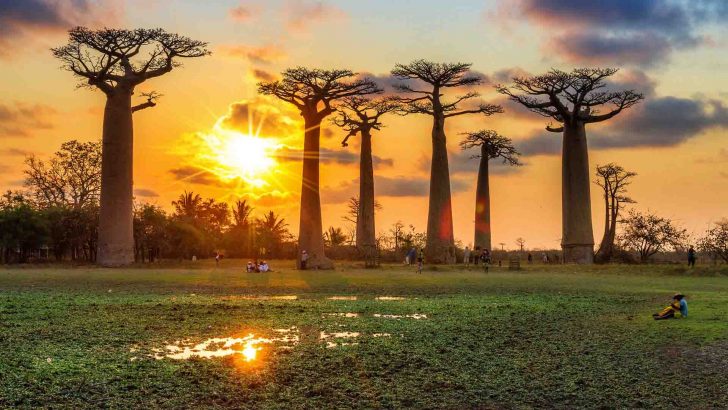
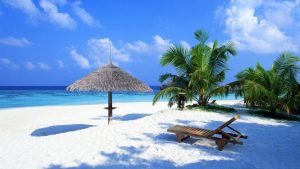
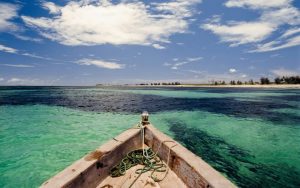
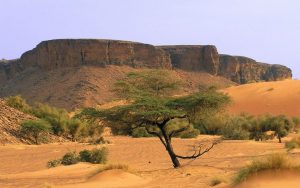
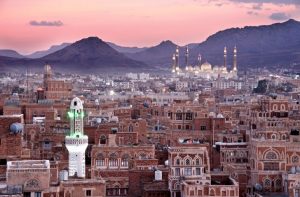
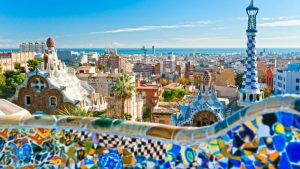






General feedback
No, there aren’t such a thing like two different currencies in Madagascar. It is just a change of name from the former (francs) to the latter (ariary) although some banknotes in ariary used to be printed with the equivalent in francs.
Note that is used (still?) to be used to scam tourists to announce prices in francs instead of ariary since 1ariary = 5 francs at the time of changement of denomination.
About general safety, a word about animals: although being tropical and subtropical country, there is almost no dangerous (lethal) specie for the human apart from mosquitoes spreading diseases and stonefish or shark by the seaside.
You might want to stay away from some streetfood as hygienic standards tend to be non existent. Locals have to take care about foreign spoliation and pedophiles predators.
Amazing landscapes, lovely country, i wish them all the best.
Be careful and you will have a good time
Madagascar is a beautiful country where, unfortunately, many people barely have enough to live on. That’s why there are so many scammers, thieves and pickpockets around. Most just need money and other goods for their survival. Does this mean this is just like the wild west? No, but you do need to be extra careful when you’re exploring this country. There’s petty theft in most areas, whether we’re talking about cities or even even in more secluded ones. In crowded places, pickpockets are always present so watch out. Keep your goods closeby and pay attention to shady people.
Some taxi drivers can be thieves in disguise. Try to only use reputed companies as much as possible. Muggings happen all the time here, mostly in some areas but they can also happen in nature reserves or on beaches. Just keep an eye out for people that look or act suspicious and don’t travel at night as much as possible.
Some of the many beautiful places one can visit while in Madagascar are Lake Itasy (with many wonderful geysers, waterfalls), the Queen’s Palace (originally built in 1839), Antsirabe (take a tour of the artisanal workshops found here – these people are very, very talented) or the Sahambavy Estate (take a tour and drink some drink green or black tea which is produced here).
If you’re into something more horror or macabre, then head over to Ambalavao. Here, back in 1811, there was a mass suicide and many bones can be found in the area. Macabre enough for you? Or go to the Spiny Forest which is very inhospitable and has a certain weirdness to it. If you’re into strange things then research this place and visit it.
There are many more places to visit in Madagascar. These are just some of the ones I experienced. Do your research before coming here and choose your own points of interest.